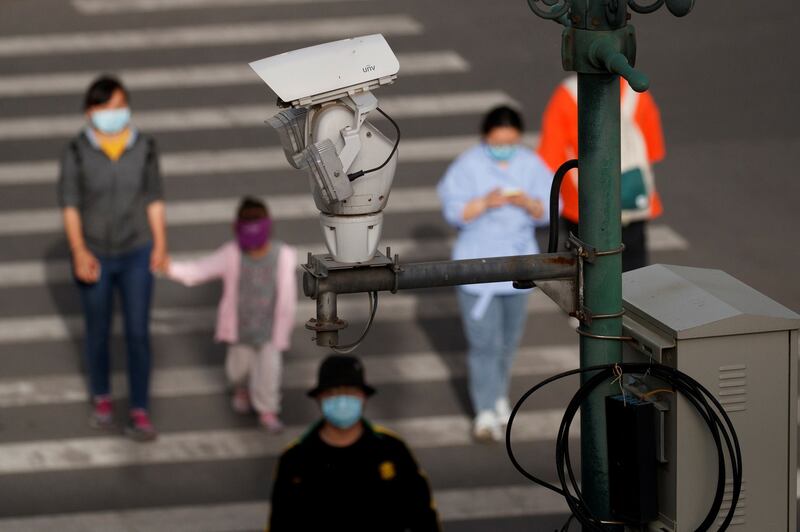China has expanded its visa-free entry policy for tourists and business travelers from more than a dozen European and Asian countries, opening up its borders further in recent months as it struggles to shore up foreign interests to help arrest an economic slowdown.
In January, the Chinese government announced that it would provide unilateral visa exemption for Ireland and Switzerland and introduce a mutual visa exemption for Singapore for 30 days. Additionally, from March 1, China and Thailand will also allow permanent visa exemption for citizens of both sides. In the past six months, Beijing has implemented a visa-free policy to tourists from Brunei, France, Germany, Italy, the Netherlands, Spain and Malaysia.
While the number of foreign tourist arrivals has jumped nearly seven times to 35.5 million last year from 4.5 million in 2022, it’s still a far cry from the 98 million recorded in pre-pandemic 2019, according to China's National Immigration Administration.
But foreign nationals would be hesitant to travel to China for several factors: the high cost of air tickets, the inconveniences upon arrival without a Chinese mobile phone number – which is needed for mobile payment apps as many businesses and restaurants do not take cash – as well as being closely surveilled and controlled by the authorities.
“I recently returned to China and the biggest inconvenience was that overseas credit cards are difficult to use in China. China’s WeChat Pay or Alipay require a Chinese domestic WeChat account to install,” an Australian citizen surnamed Yang lamented to Radio Free Asia.
“Moreover, without a mobile phone number in China, I can’t even hail a taxi. I have to ask someone to hail one for me every time.”
Yang said another issue was the close surveillance he endured.
After registering for accommodation with the neighborhood police station – a requisite – the neighborhood committee cadres would come to verify, and also inform him they knew of his comings and goings from the residence.
“It was nothing more than a warning to me: the Public Security Bureau is closely monitoring my every move and deliberately putting pressure on me.”
Not only was Yang under close surveillance, but his work partners were not spared either.
“I used my Australian mobile phone in China to make a call to a boss in Zhejiang to discuss possible cooperation. A few hours after the call, the lady was summoned to the police station. The police told her that it was an overseas fraud call and made a record. She was so scared that she never dared to answer my call again.”
Yang added he was scarred from the experience and would try to avoid going to China, which he described as “a hysterical country.”

Costly airfares and politics
A woman who works in the United States and only gave her name as Angela said the air ticket price from the U.S. to China remains high, although a slight decline allowed her to return last month.
Angela said that compared to her experience three years ago, the Chinese government has stepped up its controls on the people.
“One thing that makes it very inconvenient is: everywhere I go, I am being checked for my identity – be it to get on the high-speed rail, book a ticket for a tourist attraction, and even to register a shared bike account. The purpose of this is probably to collect and control information and capture everyone’s whereabouts, but it is very annoying.”
Separately, a travel agent in the U.S. who only gave her surname Cai noted that middle-aged and elderly overseas Chinese are reluctant to travel to China because of the political environment.
“It’s not that we don't do business in the Chinese market -- now is not the right time, whether it is political or other factors.”
Beijing is trying to rebuild its international image and trust with the international community, and the visa-free policy was one of the measures to improve relations with foreign countries, said Riley Walters, a senior researcher on international economics at the Hudson Institute, a Washington-based think tank.
“The slowdown in the economy and stock market has made China’s demand for foreign investment high. Relaxing visa restrictions will also help the tourism industry,” Walters said.
But how effective Beijing’s visa-free policy will be in shoring up foreign investment remains to be seen.
Ralph Weber, a professor from the European Center for Global Studies at the University of Basel in Switzerland, believes the policy will have a limited effect on attracting business travelers.
“Investors are hesitant to go to China because they feel uneasy. They’re worried about what’s happening in China, like the espionage laws. So the impact created by the visa-free policy is not worth mentioning. I can’t imagine a Swiss business traveler thinking, ‘Wow, I now don’t have to pay for a Chinese visa, so I’m going to invest in China.’ That’s not the logic,” Weber said.
China’s actual foreign direct investment fell 8% to 1.13 trillion yuan (US$159 billion) last year, according to the Ministry of Commerce.
Translated by RFA staff. Edited by Taejun Kang and Mike Firn.
